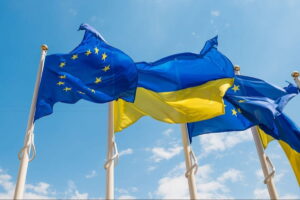
Ukraine’s state budget on Tuesday received the sixth tranche of EUR1.5 billion as part of the EU’s large-scale macro-financial assistance for 2023, the Finance Ministry said.
The ministry specified that since the beginning of the year Ukraine has already received EUR10.5 billion of macro-financial aid from the EU out of the total funding of EUR18 billion.
“Since the beginning of the full-scale war, the EU has sent EUR17.7 billion of macro-financial assistance to Ukraine. These funds have contributed to maintaining macroeconomic stability in the country, as well as help finance priority state budget expenditures in a timely and full manner,” Ukrainian Finance Minister Serhiy Marchenko said in the release.
The Finance Ministry recalled that the funds are provided on unprecedentedly favorable terms for Ukraine and are used to finance priority state budget expenditures. In particular, the loan repayment period is 35 years, while interest and other debt service payments will be compensated by the EU countries instead of Ukraine if Ukraine meets the conditions under the program.
The next tranches under the large-scale macrofinancial assistance program will be received by the state budget during 2023, subject to Ukraine’s fulfillment of the conditions agreed upon by the parties, the Finance Ministry said.
As reported, as of July 21 this year, the state budget of Ukraine received funding from international partners in the amount of $23.6bn, compared to $32.1bn last year, while the need for this year is about $42bn.
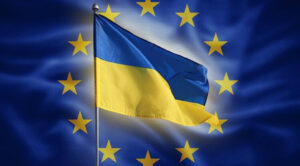
Ambassadors of European Union member states supported the extension of trade liberalization with Ukraine, the Swedish EU presidency said on its Twitter page.
“The Committee of Permanent Representatives (Coreper) has just supported the renewal of the Provisional Trade Liberalization Regulation supplementing trade concessions under the EU-Ukraine Association Agreement. This will support Ukraine’s economy after Russia’s full-scale invasion of Ukraine,” the statement said.
The decision must then be approved by the European Parliament, followed by a formal decision by the European Council. The procedure should be completed at the end of May.
A day earlier, on Thursday, the “green light” to extend the cancellation of import duties on Ukrainian exports to the European Union for a period of one year to support the country’s economy was given by the European Parliament’s Committee on International Trade. The vote in the plenary session is scheduled for May 8-11.
As it was reported, the problematic issue was the ban on the import of Ukrainian agricultural products by five EU countries – Poland, Bulgaria, Hungary, Romania and Slovakia. It was caused by the accumulation in these countries of Ukrainian agricultural products intended for further import. In this connection, on April 19, President of the European Commission Ursula von der Leyen announced proposals to introduce a temporary – until June 5 – import ban on corn, wheat, rapeseed, sunflower and sunflower oil for these five countries. Besides, financial compensation in the amount of EUR100 million is envisaged for these countries.
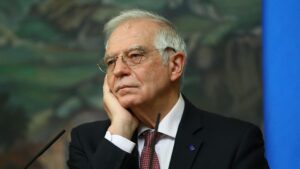
The European Union has already allocated nearly 50 billion euros in military, financial, economic and humanitarian aid to Ukraine, an additional 500 million euros in military aid has been approved, and the Union states intend to continue supporting Kiev, EU diplomacy chief Josep Borrel said.
“I can tell you that we will continue our support for Ukraine,” the EU high representative for foreign affairs said at the end of an EU Foreign Affairs Council meeting Monday in Brussels at which member state ministers discussed aid for the Ukrainian armed forces.
“Today we reached a political agreement on the seventh tranche of military assistance for an additional 500 million euros and another 45 million for measures to enable Ukrainian soldiers to receive training as part of our military support mission,” Borrell continued.
The European diplomacy chief noted preparations for an EU-Ukraine summit on February 3, “the first summit since Ukraine received candidate status” for EU membership.
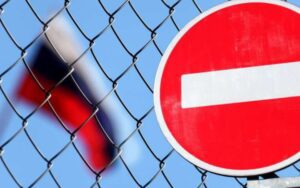
The ninth package of European Union sanctions on Russia for the war it is waging against Ukraine will be approved in writing on Friday.
The Czech Presidency announced this on its Twitter page.
“Ambassadors agreed in principle on a sanctions package against Russia as part of the EU’s ongoing support for Ukraine. The third Russia sanctions package negotiated under the Czech Presidency of the Council of the European Union should be confirmed via written procedure tomorrow,” it said.
In accordance with the practice of the EU, initially the decisions that must be further approved by the leaders of the EU are agreed upon at the level of ambassadors of the EU member states. So in this case, before the leaders approved the ninth package of sanctions for Russia, they were agreed upon by the ambassadors, whose Committee meetings were held almost simultaneously with the meeting of the European Council.
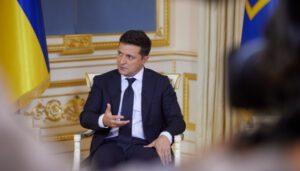
President of Ukraine Volodymyr Zelensky called on EU leaders to provide the remaining EUR6 billion of macro-financial assistance by the end of the year, a decision in principle on which was made in late May – early June.
“Thank you for the funds that have already been received, but a decision has not yet been made regarding the remaining 6 billion from this package, which are critically needed this year. And it is in your power to come to an agreement in principle today on providing this assistance to our state” , the President said, speaking on Thursday by video link to members of the European Council.
He also spoke about the need for more support for the implementation of the Ukrainian Fast Recovery Plan.
“You have all this data – what exactly we need. We already have an understanding of the necessary funds. This is 3.5 billion euros this year and about 14 billion euros next year,” Zelensky said.
“And so far we have received zero from these funds. And they are vital. As well as the next tranches of Macrofin for Ukraine are vital,” the head of state stressed.
As reported, in late May-early June, the EU tentatively approved the allocation of new emergency macrofinancial assistance to Ukraine for EUR9 billion, of which EUR1 billion was allocated in early August. The remaining EUR8 billion was expected to come in one tranche, but the final decision on them was delayed. One of the reasons cited is the debate over how these funds should be provided: in the form of loans or grants.
As a result, only EUR2 billion was received this week, while the Vice-President of the European Commission Valdis Dombrovskis said that the third tranche of EUR3 billion is expected in early December.
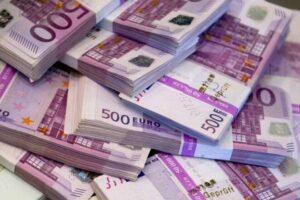
The European Union has fully provided Ukraine with the first tranche in the amount of EUR1 billion of new emergency new macro-financial assistance, said the head of the European Commission, Ursula von der Leyen.
“These funds will help Ukraine meet its urgent financial needs in the wake of unprovoked and unjustified Russian aggression. The €1 billion will strengthen Ukraine at a critical juncture,” she wrote on Linkedin on Tuesday.
On the eve of the receipt of the first EUR500 million from this tranche in Ukraine, Prime Minister Denys Shmygal announced, adding that the second EUR500 million is expected on Tuesday, August 2.
As reported, the EU has previously approved the allocation of new emergency macrofinancial assistance to Ukraine for EUR9 billion, of which EUR1 billion has been allocated so far. The remaining EUR8 billion is expected to come in one tranche, but the final decision on them is being delayed.
President of Ukraine Volodymyr Zelensky on the eve appealed to French President Emmanuel Macron with a request to unblock macrofinancial assistance from the European Union.